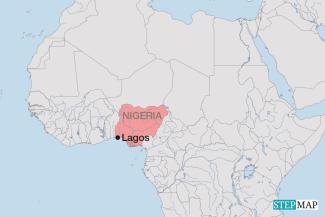Brain drain
Underpaid and overworked health workers in Nigeria

Nigeria is the most populous country in Africa, with around 220 million people. The sheer size of the population poses development challenges, and many Nigerians say they are living in unprecedented hardship.
Several challenges exist for people in the country. Unemployment tops the list, with many people unable to find a job or decent employment. Added to this is the high cost of living, which has worsened in recent days given the influence of the Russian war of aggression in Ukraine and the Covid-19 pandemic.
Infrastructure development, especially, for the country’s energy sector is a key challenge too. Chronic load-shedding is popular in Nigeria and some areas record up to 48 hours of blackouts. In such an environment, even entrepreneurship has suffered as businesspeople are unable to operate or must do so at a higher cost.
The mass emigration of skilled health workers, especially nurses, is a result of this failed system. As multiple challenges exist, many of Nigeria’s nurses look for opportunities outside the country. Moreover, with the challenges that global health systems have faced in recent years, the demand for trained health workers has increased. Countries like Nigeria that cannot offer incentives to keep their workers are suffering losses.
Figures by the United Kingdom Nursing and Midwifery Council (NMC) reveal that the number of Nigerian-trained nurses who are now on the UK permanent register has increased in the last five years to 7,256 from 2,796 in March 2018. And this number just represents those who seek opportunity in the UK; several other Nigerian nurses have migrated to other developed countries.
Nigeria’s health workers are grossly underpaid and overworked. The average monthly wage is said to be less than what a health worker in the western world earns in just three hours. Moreover, it is very common for wage payments to be delayed for months.
A recent phone conversation I had with a female colleague who just travelled from Nigeria to the UK proved that they are in a much better place. I jokingly asked her: “If all the nurses in Nigeria travel abroad who will be left to man our hospitals and care for the sick?” To which she replied: “Let your corrupt and greedy politicians put on scrubs and do the nursing jobs!”
Nigeria’s government seems helpless to intervene in the recent wave of mass exodus of the country’s health workers. The government has a lot on its table as it is. To retain its personnel, much investment would have to be put into refurbishing health facilities, improving workers’ pay and providing medical supplies. In the short term, there is a small chance that this will happen. The country needs to take bold steps to address this brain drain. In the short term, significantly increasing health workers’ pay could be sufficient.
Daniel Edonmi is a registered nurse working at the Delta State University Teaching Hospital in Oghara, Nigeria.
danieledonmi@gmail.com












